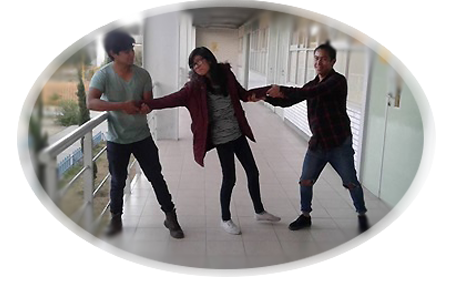

Possessive pronouns are words, which give ownership to someone or something. They substitute the noun and avoid repetition. They make sentences less confusing.
The possessive pronouns in English are as follows:
mine yours his hers its ours yours theirs.
You should not confuse possessive adjectives with possessive pronouns. Look at the following chart.
Personal pronoun |
Possessive adjective |
Possessive pronoun |
I |
My |
Mine |
you (singular and plural) |
Your |
Yours |
He |
His |
His |
She |
Her |
Hers |
It |
Its |
its |
We |
Our |
ours |
They |
Their |
theirs |
There are different forms of expressing possession; two of the most common are possessive adjectives and possessive pronouns.
First at all, we have to know the difference between and adjective and a pronoun.
Read the following examples
The blue words are the adjectives that describe the nouns which are in red:
An adjective always goes before a noun, because if we use the adjective only, we will do not know who it refers to.
If we say blue, tall, intelligent or good, we won't know who or what these adjectives refer to. That is why an adjective always goes before a noun.
The red words are the nouns and the blue words are the pronouns.
Examples of pronouns:
|
|
|
|
|
|
|
|
Notice that a pronoun substitutes the noun to avoid repetition. If we don’t want to say “Tom”, we say “he” if we don´t want to say “the girls” we say “they”. That is why when we use possessive pronouns we don´t mention the item that is possessed because a pronoun substitutes the noun.
Read the following sentence, pay attention to the read words.
This cell phone is my cell phone, it is not your cell phone.
You can see in this sentence we say three times cell phone, the sentence is correct, but it does not sound good because we are repeating cell phone which is the noun.
When we use the possessive pronouns we avoid repeating the noun, in this case cell phone.
Look at the sentence again, now with possessive pronouns.
This cell phone is mine, it is not yours
The possessive pronouns mine and yours substitute the possessive adjectives and the nouns.
This cell phone is my cell phone, it is not your cell phone
Mine yours
Now read the sentence again
This cell phone is mine, it is not yours
You can see in the example, possessive pronouns have the function of describing who is the owner of something or someone and replace the possessive adjective and the noun.

OpenClipart-Vectors. (2013). Teléfono. Retrieved 15/04/17 from https://pixabay.com/es/tel%C3%A9fono-la-comunicaci%C3%B3n-158086/

AdinaVoicu. (2015). Chica. Retrieved 15/04/17 from https://pixabay.com/es/chica-halloween-maquillaje-fantasma-1145365/
The possessive pronouns are always the same for singular or plural nouns, look at the following example (you will notice that the possessive pronoun is the same for singular or plural nouns):
Singular |
Plural |
Jack: is it your pencil? 
OpenClipart-Vectors. (2013). La Escuela. Retrieved 15/04/17 from https://pixabay.com/es/la-escuela-l%C3%A1piz-pluma-escribir-153561/ |
Jack: are these your color pencils? 
Padrinan. (2016). Verde. Retrieved 15/04/17 from https://pixabay.com/es/verde-arte-madera-afilado-l%C3%A1piz-1738220/ |
There are 7 possessive pronouns. Read carefully:
In the following chart there is a summary of the possessive pronouns with the first, second and third person in plural and singular. Click on each box to display all the elements.
|
PERSONAL PRONOUNS |
POSSESSIVE ADJECTIVES |
POSSESSIVE PRONOUNS |
First person singular |
I |
My |
Mine |
First person plural |
We |
Our |
Ours |
Second person singular |
You |
Your |
Yours |
Second person plural |
You |
Your |
Yours |
Third person singular |
He |
His |
His |
Third person singular |
She |
Her |
Hers |
Third person singular |
It |
Its |
Its |
Third person plural |
They |
Their |
Theirs |
Read the sentences and write on the blanks the correct possessive pronoun..
Keep in mind that when you answer this exercise you use contractions.
Example:
They are their books. Normal form
They are theirs. INCORRECT ( not using contractions)
They´re theirs. INCORRECT ( not apostrophe )
They’re theirs. CORRECT (using a contraction)
Activity 1
Think about the answers to these questions:
In this activity, you will read a text about a girl who goes back to her country and writes a message to her friends.
Read the text carefully “Far from family”.
Activity 2
Listen to the podcast “A worried boy”.
Then decide if the following statements are true or false by choosing the appropriate option. You can know your score at the end of the exercise.

Activity 3
Harry and Thomas are friends, they are very boastful and they exaggerate about their family.
Read the beginning of the following situation. What happened after the two boys met? How did they talk about their relatives?
Write your composition using 120-150 words using as many possessive pronouns as you can.
My family...
Thomas: Last year we spent our vacations in Cancun.
Harry: ours were in Canada.
Thomas: My brother has a new bicycle
Harry: Mine has a motorcycle
Thomas: My sister…
When writing your composition make sure it has the characteristics contained in the rubric.
Activity 4
Think about your family members and things you have at home and talk about them from 1.5 to 2 minutes.
Use possessive pronouns. For example: let’s talk about my father, the new blue car of his; the old smartphone of hers; I want to talk about my mother ….The SUV car is hers, …

Before recording yourself, take a look at the following rubrics, so you know the aspects considered.
Once you are ready, you can record yourself.
You have come to the end of the “possessive pronouns” section.
We hope you have learned how to use them.
Remember that you must avoid confusing them with the possessive adjectives or the object pronouns.
We invite to try to use them from now on with your friends and relatives.
Fill in the blanks with the correct possessive adjective or possessive pronoun.
Example: Alice says the sweater is hers.
Look at the nouns in parentheses and according to the context write the correct possessive pronoun.
Example: (Billy) Is that your car? No, it is his
Pay attention to the context of the sentence and write the letter of the best answer to complete each sentence. The answers can be possessive adjectives or possessive pronouns.
Example: ___b_______ father used to take me to the school when I was a child.
• Fuscoe K., (2010). Attitude Student’s Book 1. Mexico:MacMillan.
• McCarthy M., (2005). Touchstone 1. New York USA: Cambridge University Press.
• Raskin J., (2010). Future English for results 2. New York USA: Pearson Longman.
• Richards J., (2006). Interchange 1. New York USA: Cambridge University Press.
• Saslow J., (2011). Top Notch 1. New York USA: Pearson Longman.
• Soars L., (2003). American Headway 3. New York USA: Oxford University Press.
• Soars L., (2009). American Headway 1. New York USA: Oxford University Press.
• Shawn English Online. (2014). English Grammar: Possessive Pronouns [video]. Retrieved 23/04/17 from https://www.youtube.com/watch?v=YzInQMQ7hWE
• TeacherPhilEnglish. (2013). Possessive pronouns [video]. Retrieved 23/04/17 from https://www.youtube.com/watch?v=YEqGO6ZDQC0